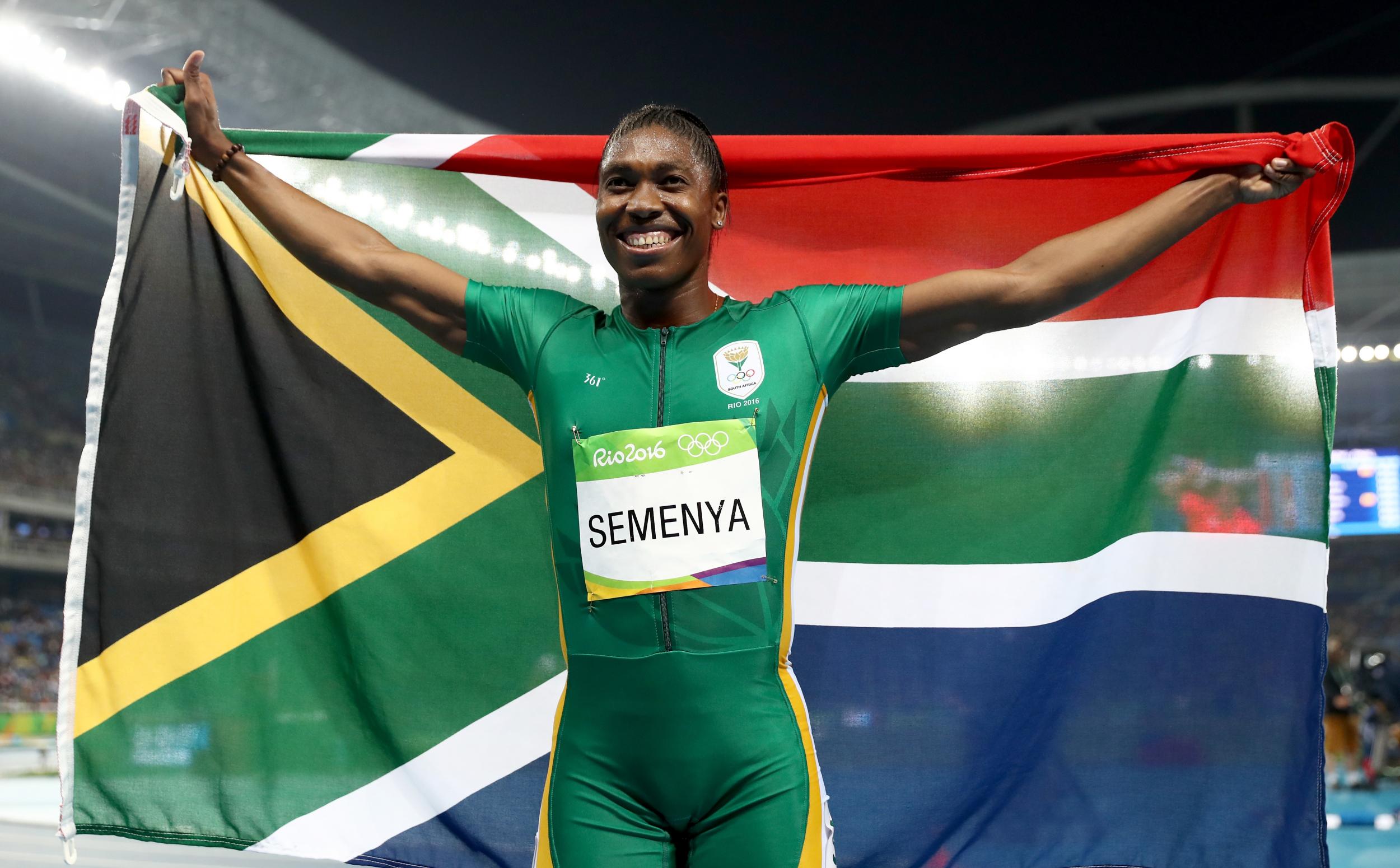Caster Semenya's problem isn't that she's intersex – it's that her femininity doesn't look how we want it to
The treatment of Semenya threatens the inclusion of queer, trans and intersex people in the Olympics – a sporting competition already defined along sloppy gender lines

South Africa’s Caster Semenya has become one of the most talked-about track and field athlete of this year’s Olympic games – but not in the way she might have hoped. The intersex athlete gloriously picked up gold in the women’s 800m after an impressive time of 1 minute 55.28 seconds but has been put through unwanted scrutiny, forced scandal and controversy because of speculation surrounding her levels of testosterone.
For anyone outside of the hetero-hegemonic norm that sport likes to stay firmly entrenched within, the Olympics have been a tough place. We may have had queer victories with the likes of Team GB hockey stars Helen and Kate Richardson-Walsh, the first gay married couple to win a medal; Tom Daley winning bronze in the men's synchronised 10m platform with his diving partner Dan Goodfellow; and a speculated record-breaking 53 openly LGBT athletes competing; but we’ve also seen journalists queer-baiting and outing gay athletes through Grindr, homophobic chanting at the football events, and now Semenya’s success questioned because of her hyperandrogynism, a condition that means her testosterone levels are about three times higher than the “average” woman.
Publications have paraded Semenya around as if she were a freak, speculating on what she is rather than what she does. The talented athlete has been subjected to invasive questioning and unwanted media attention because her femininity and womanhood doesn't look how we would like it to. She has been catapulted into a misogynistic witch hunt that proves that, regardless of what a woman achieves, she will always be questioned or undermined. While the media slate, Semenya has remained silent, presumably distressed and sick of the slander.
So what’s the problem? In 2009, following a 800m World Champion win, an 18-year-old Semenya was forced into taking a humiliating test to “prove” her gender. The results claimed she had hyperandrogenism, meaning higher levels in testosterone, and one leaked report suggested she had no womb or ovaries but internal testes instead because of a very rare chromosomal abnormality. The hormone levels supposedly bring to question whether she has an “unfair” advantage to her competitors for something she was born with, a biological fact she cannot change.

In 2015, Indian runner Dutee Chand challenged a previous rule that female athletes with naturally higher levels of testosterone were not allowed to race without medical interventions to lower their hormones. The Court of Arbitration for Sport (CAS) ruled in her favour and gave the International Association of Athletics Federations (IAAF) two more years to find evidence of the degree of performance advantage provided by increased levels of the hormone.
Current regulations and bans have been suspended in the meantime, but just two hours before her triumphant win, president of the IAAF Seb Coe pledged to try overturning the CAS’s ruling. Coe’s decision is a purposeful and clear attack not only on Semenya, but queer, trans and intersex athletes, threatening their visibility and representation.
In a press conference prior to the run, frustration about the matter was reflected in Semenya’s own words: “I think [sport] is all about loving one another. It’s not about discriminating against people. It is not about looking at how people look, how they speak, how they run, it is not about being muscular. It is all about sport. When you walk out of your apartment you think about performing, you do not think about how your opponent looks.”
It’s clear that Semenya is an extremely fast, accomplished and dedicated athlete. It’s hardly true that her condition eliminates the need to train hard and practice in order to build on her natural sporting abilities. There is a multitude of factors that go into that training, which makes it extensively difficult to definitively measure the actual effect of naturally produced testosterone on athletic performance.
It is imperative to remember that the Olympics split themselves with a sloppy gender proxy for competing, reliant on a constellation of biological markers, not a testosterone split. We do not attack men who have higher testosterone levels than other male athletes and we especially do not force them to have inhumane and wildly problematic “gender tests”. Semenya is guilty of nothing. She is an Olympic champion and it’s time we treat her like one.
Her win stands as a victory for all those who have ever been told that they should be ashamed or change who they are. For the young queer, trans and intersex individuals sat in their homes watching Rio, Semenya’s win is a signpost to them telling them that they can do anything they want in this world. Thank you, Semenya, for sharing your championship with us.
Join our commenting forum
Join thought-provoking conversations, follow other Independent readers and see their replies
Comments
Bookmark popover
Removed from bookmarks